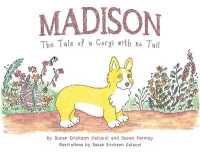- ホーム
- > 洋書
- > 英文書
- > Nature / Ecology
Full Description
There is a considerable gap between the science of conservation biology and the design and execution of biodiversity conservation projects in the field. Science is often failing to inform the practice of conservation, which remains largely experience-based. The main reason is the poor accessibility of evidence on the effectiveness of different interventions. This is the basis for this book adopting an 'evidence-based approach', modelled on the systematic reviews used in health sciences and now being applied to many policy arenas.
Evidence-based Conservation brings together a series of case studies, written by field practitioners, that provides the evidence-base for evaluating how effective conservation and poverty alleviation strategies can be better implemented. A series of systematic reviews uses experiences and data from fifteen integrated conservation and development projects conducted in the Lower Mekong region, specifically in Vietnam, Laos and Cambodia. They provide wide-ranging overviews of the effectiveness of protected areas and how innovative tools and methods for monitoring and evaluation can be utilised for more effective outcomes. Results are in the form of management and policy recommendations, based on the quality of evidence and the cost-utility of the intervention. By bridging the gap between field practice and conservation, the analysis should lead to more effective integrated conservation and development interventions. The book represents one of the first attempts to apply the evidence-based approach to conservation and development.
Contents
Part 1: Introduction Part 2: Experiences From the Field: Lessons Learned in the Implementation of Integrated Conservation and Development Projects. Laos. Cambodia Part 3: Analysis of Conservation and Development Initiatives in the Lower Mekong: Possibilities, Prospects and Policy Part 4: Conclusions and Recommendations







